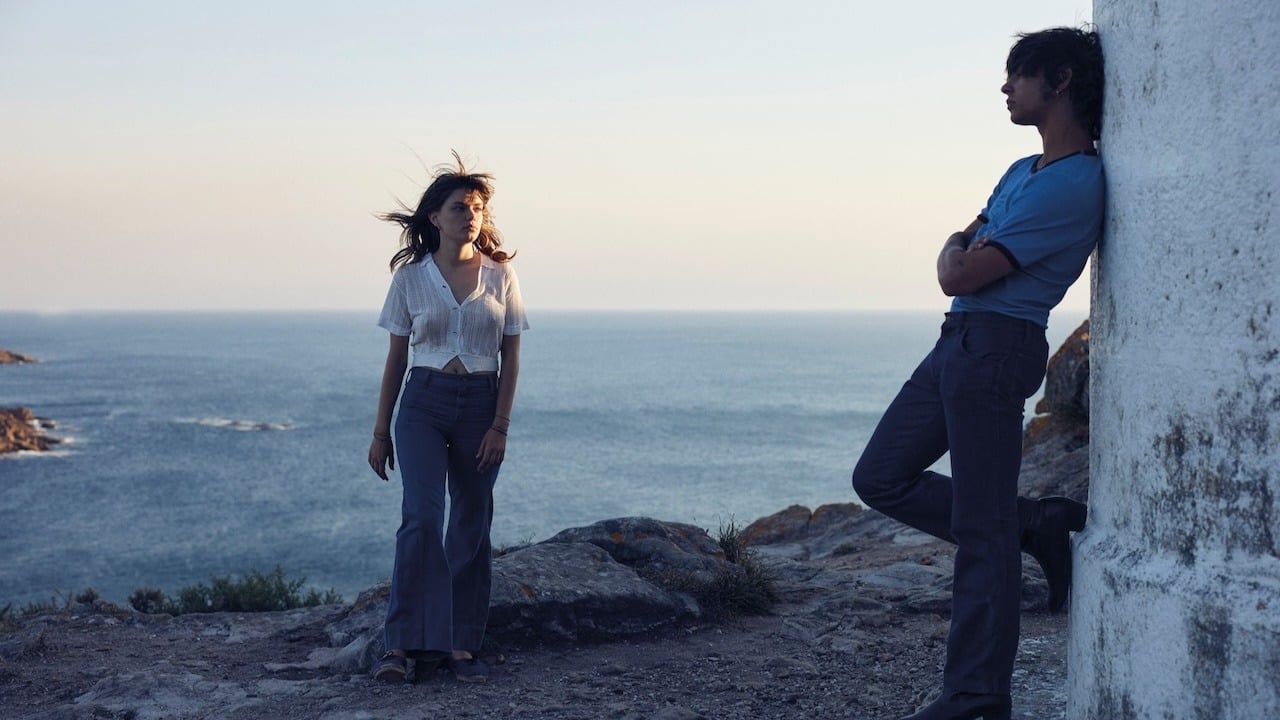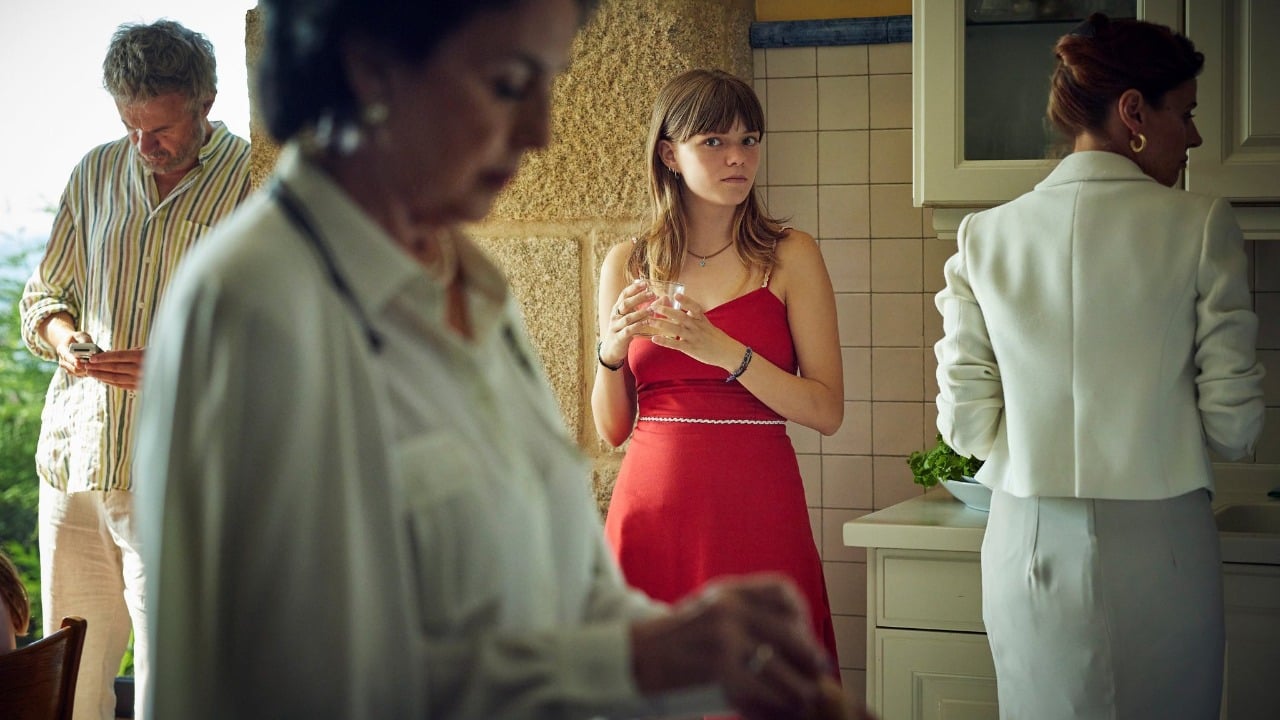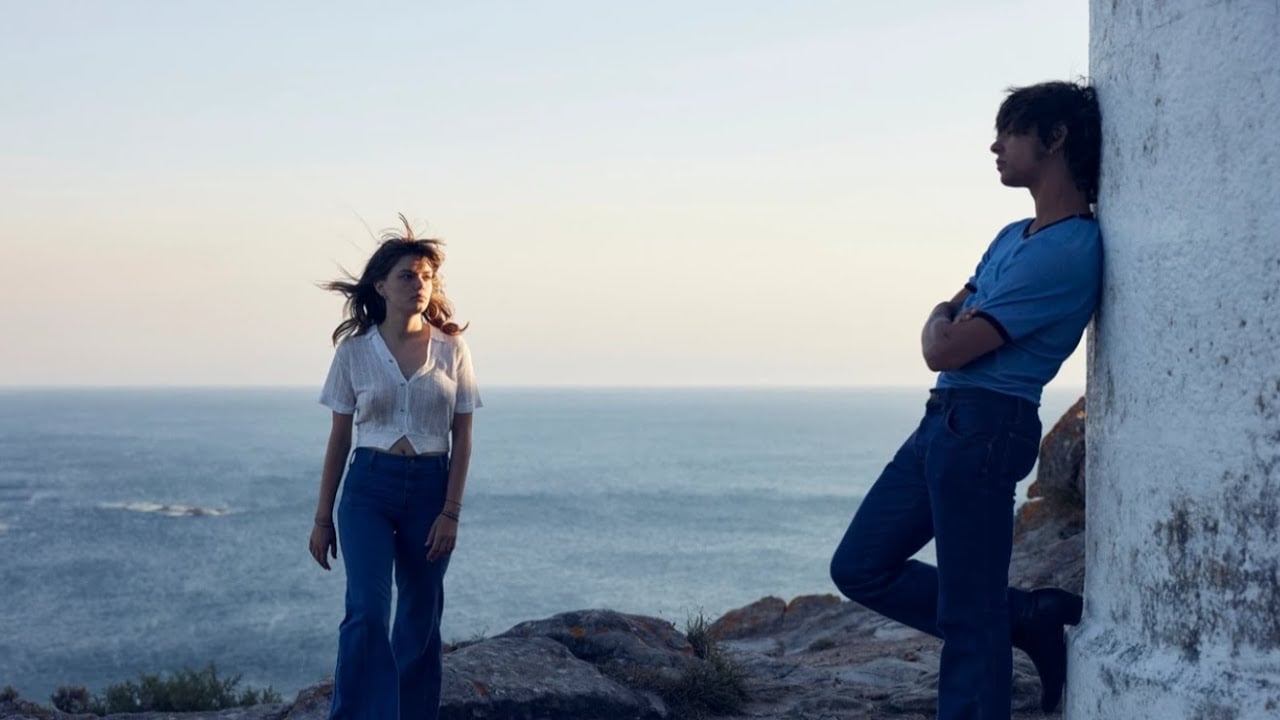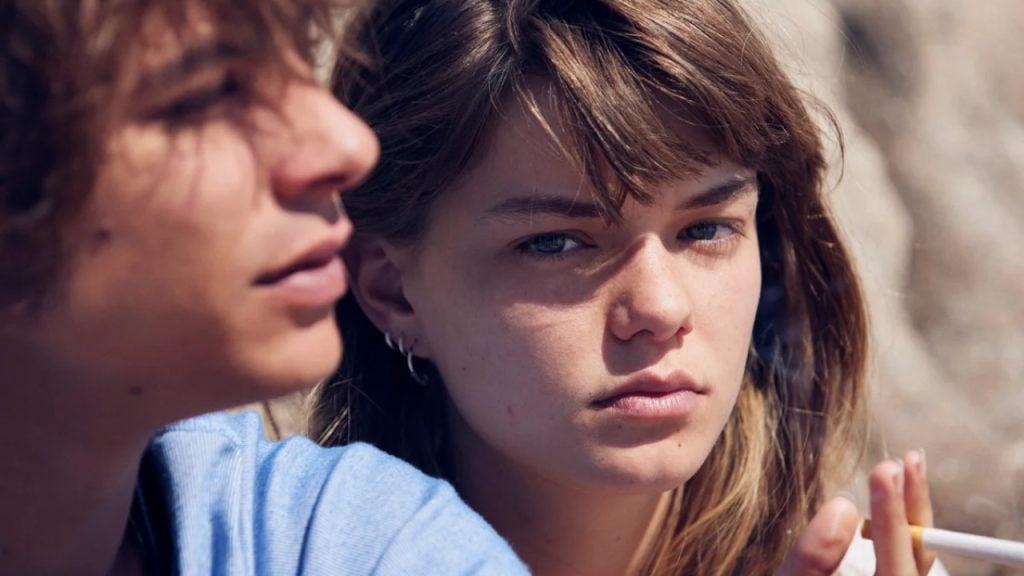After tenderly exploring family and belonging in her delicate Summer ’93, Spanish writer/director Carla Simón is now back with her signature combination of intimacy, restraint, and nostalgia. In Romería, she continues to shine a spotlight on the memories we tend to forget, relive, or reflect on. Sadly, much like the family this work depicts, the film itself feels fractured and uneven.
With her deceased mother’s detailed journal close to her heart, the 18-year-old Marina (Llúcia Garcia) travels to Ria de Vigoi. This is to obtain a notarised addendum of her father’s lineage for her potential filmmaking scholarship. This movie could have easily been a run-of-the-mill drama about administrative formalities and family problems. Instead, it becomes an intimate search for identity and connection when Marina reconnects with her long-lost family members living on that sun-soaked Spanish island.
That enchanting, brightly blue seaside town is the ideal sunny backdrop for the semi-autobiographical journey through lost family memories, happy times, and even some delicious scandals. Chapter by chapter, each accompanied by a diary excerpt, Marina’s present becomes more intertwined with her parents’ past. However, she is soon left with more questions than answers when she finds out that her own accounts of her parents, who died of AIDS, contrast with those of her family members. The passage of time has already had a profound impact on how Marina remembers her parents and the events that occurred. Now the question remains whether she can uncover who her parents really were before it’s too late.

To ensure that she never forgets the most important search of her life and her time with her family, Marina always carries her camcorder with her in this feature. At first, she might seem a bit nervous and anxious, as both an aspiring filmmaker and a daughter who’s uncertain about her parents. Still, the longer the search continues, the more confident and forthcoming she becomes. The blossoming of a shy teenager into an assertive young woman with a mind of her own is clearly visible in Garcia’s progressively stronger performance. From timidly avoiding everyone’s gaze and the camera to becoming a bold, engaging storyteller, she embodies the role with nuance and poise. Just like Mia McKenna-Bruce in How To Have Sex, Garcia delivers a magnetic screen debut and proves that she’s a rising talent to look out for.
Although the secondary characters aren’t as equally strong, explored, and performed, except Marina Troncoso’s cold and frosty portrayal as Marina’s aunt and Mitch Martín, who brings mischievous charm to this work as both Marina’s cousin and her father’s younger self, they all map out beautifully a family torn apart by the truth, complex guilt, and ignorance. This leads to standout family gatherings that feel both extremely familiar to us yet so bizarre to Marina, who tries to find her place in the world and within her family.

The use of Marina’s self-shot footage not only keeps her journey through Ria de Vigoi alive but also perfectly matches the powerful, tender, and intimate story about the fragility of memories and the importance of family connections. The diary voice-overs make that sense of closeness even stronger, while the soft sandy colours and the film’s surreal tone make it all feel almost dreamlike. Whether it’s Marina’s personal recordings or Hélène Louvart’s (La Chimera) textural cinematography, the rich interplay of different visuals embodies both past and present beautifully. By foregoing the typical musical score and opting instead for a more naturalistic sound design, such as the sound of the sea breeze and the murmuring in the background, the authenticity and beauty of the story come to the forefront even more.
Unfortunately, that surreal and magical-realist visual element takes you out of the film multiple times as it interrupts the flow of the (uneven) chapters. By the end of its 112-minute runtime, the movie appears uncertain about its identity. Does it want to be the self-discovering journey of a teenager or the misfortune of living with AIDS and the use of drugs? It’s neither one nor the other. Even so, the emotional connection that has been present from the beginning strengthens as Marina learns more about her parents, no matter how fractured or sluggish the movie feels.
In Romería, Simón navigates through her memories of family, loss and (broken) dreams, resulting in a sunny, solemn, yet also increasingly monotonous coming-of-age story.
Romería is part of the Love section at the BFI London Film Festival 2025 and will be released in North America in 2026 courtesy of Janus Films.
Director: Carla Simón
Writer: Carla Simón
Rated: NR
Runtime: 112m

In Romería, Simón navigates through her memories of family, loss and (broken) dreams, resulting in a sunny, solemn, yet also increasingly monotonous coming-of-age story.
-
GVN Rating 6.5
-
User Ratings (0 Votes)
0







